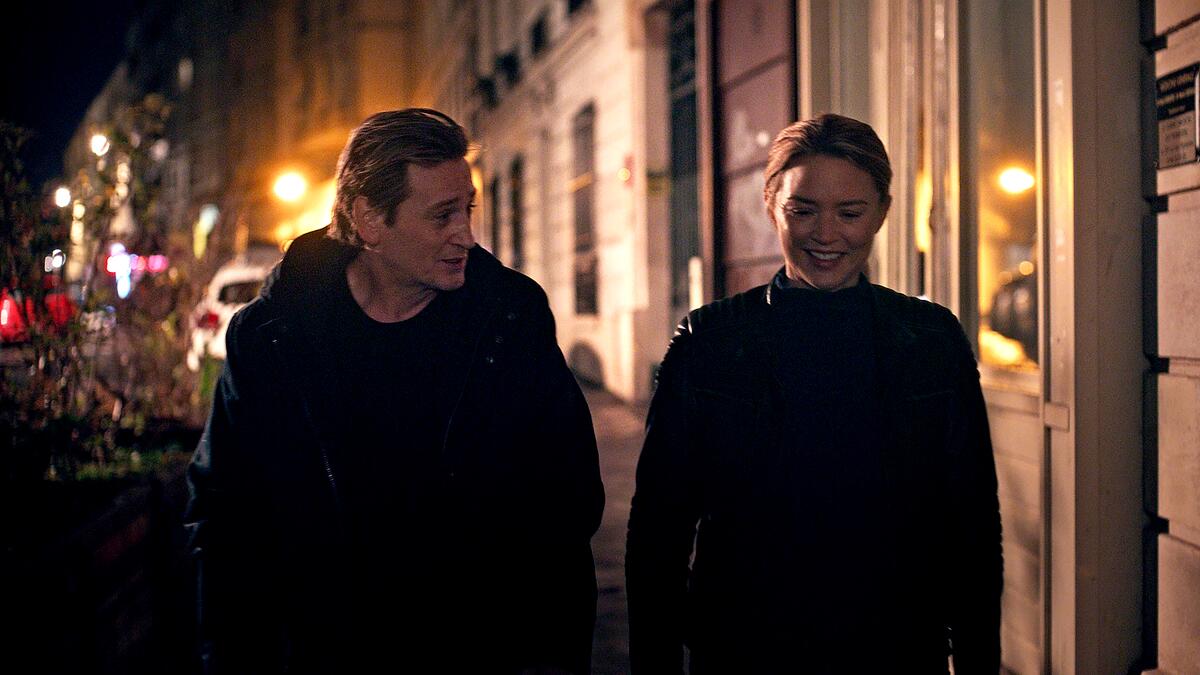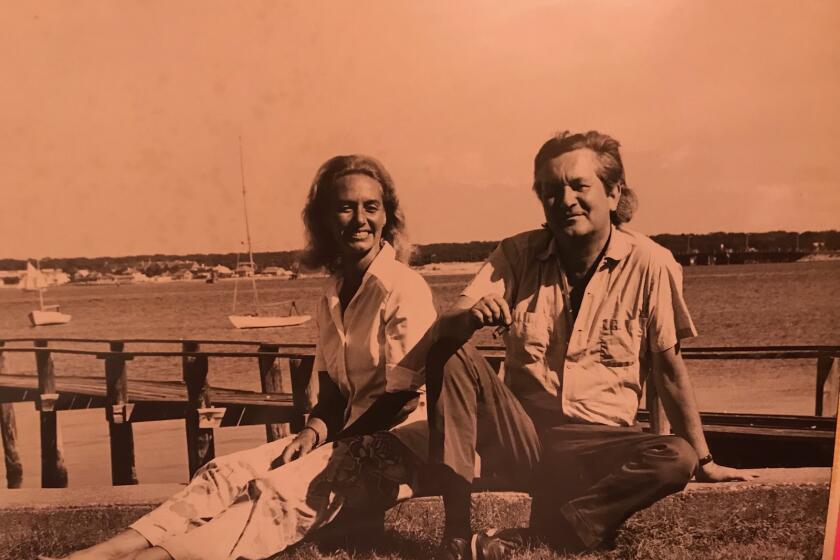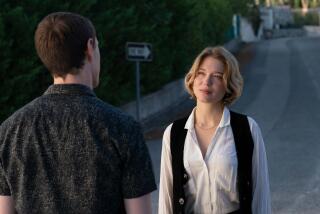Review: From repair to renewal, ‘Revoir Paris’ reveals a city rediscovered after a tragedy

- Share via
Alice Winocour’s affecting French drama “Revoir Paris” has been given the wistful-sounding English title “Paris Memories.” But the more accurate translation — “to see Paris again” — better hews to something literal and figurative in the emotional state of its lead character: not a traveler or visitor, but a Frenchwoman, under tragic circumstances, encountering her city all over again.
We’re introduced to Mia (Virginie Efira), a Russian translator, over the course of a day that begins with an Akerman-esque window view on Parisian rooftops and includes a gig at a radio station interpreting a ballet director’s interview answers. That night over a meal out, her doctor boyfriend (Grégoire Colin) is called away, and Mia heads home on her motorcycle, only to escape into a bustling bistro when a downpour starts. As the pace mysteriously slows so we observe what Mia does — a group celebrating a well-dressed man’s birthday, another table’s tourist selfies, an elegant woman’s sleeveless back — the din of merry diners is broken by gunfire. Suddenly Mia is on the floor, surrounded by death and trying to survive. Then the screen goes black.
Months later, Mia carries a scar on her side. But the details of what proved to be a coordinated terrorist attack have left her brain, save the flashes and haunted visions triggered by a restarted routine from which she’s feeling increasingly remote, as if a spectator to some unrelatable past. Riding her motorcycle past the restaurant one day, something persuades her to go in. She learns of a support group that meets there for survivors and loved ones, tethered wanderers searching for missing pieces, recognizing a shared experience.
Poet, journalist and human rights activist Rose Styron, widow of novelist William Styron, gets a welcome profile from a friend and neighbor, director James Lapine.
A teenage girl, Félicia (Nastya Golubeva Carax), asks Mia if she remembers her parents, who never made it home. Mia finds herself drawn to the birthday guy, a banker named Thomas (the wonderful Benoît Magimel), who’s now on crutches but whose ramshackle woundedness he leavens with humor and gruff charm. One visibly pained survivor, however, says Mia did nothing to help others that night. Though the accusation doesn’t gibe with Mia’s slowly returning memories, it’s one more signal to her that the rebuilding process is fraught, incomplete and fragile enough to be approached with understanding above all.
Which is Winocour’s thrust as well in finessing a story of tragedy and healing inspired by her own connection to a survivor of the November 2015 Bataclan mass shooting in Paris. (Her screenplay collaborators are Marcia Romano and Jean-Stéphane Bron.) Such first-person empathy for the nuts and bolts of reestablishing a forever-changed life carries “Revoir Paris” across its epiphanies and diversions, from the far-off look Mia slips into — a quietly forceful key to Efira’s intelligent, on-the-go performance — to interludes narrated by other survivors about the closure they’re seeking.
Mia’s involves reconciling one broken relationship with the allure of a possible new one, a narrative thread that toggles uneasily between acuity in its details and a regrettable predictability. Where it’s all happening, however, is an aural/visual asset — Paris captured in all its sensorial intimacy and roar by Stéphane Fontaine’s cinematography and Anna von Hausswolff’s churning score. When Winocour sets a scene in front of the calming beauty of Monet’s “The Water Lilies” at the Musée de L’Orangerie, it’s art getting the superstar cameo treatment.
Compassion and insight mix most stirringly, though, in Mia’s restless drive to find the stranger (Amadou Mbow) behind the hand that held hers in the frightened dark that night, an act of connection — practically conduction — she believes may have saved her life. It’s this journey that Winocour makes into something truly heart-rending: a story of the Paris hiding in plain sight, lives of struggle, indispensability and endurance that shouldn’t need communal torment and headlines to spur others to regard in their fullness. It’s in that soulful shift from repair’s confusion to renewal’s fullness where “Revoir Paris” is most powerful, dramatizing what it can mean to outlive something unimaginable — and look at the world anew.
'Revoir Paris'
In French with English subtitles
Not rated
Running time: 1 hour, 44 minutes
Playing: Starts June 30, Laemmle Royal, West Los Angeles
More to Read
Only good movies
Get the Indie Focus newsletter, Mark Olsen's weekly guide to the world of cinema.
You may occasionally receive promotional content from the Los Angeles Times.










